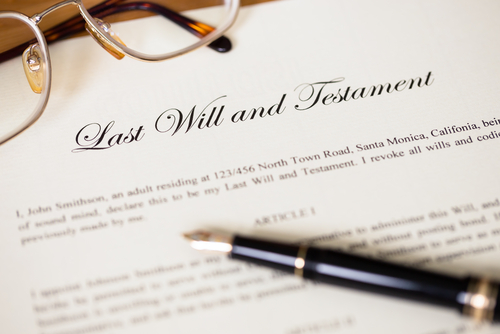Ideally, everyone should have a last will and testament that is properly prepared and stored in a fireproof safe or a secure online vault. Of course, it is also a good idea to ensure that at least a few people are aware of the location and have access to the will.
After you’ve chosen an executor for your will, consider sharing a copy with them and telling them where you keep the original. According to the US Will Registry, an estimated 67% of wills are not located when needed.
A will is required to determine how a decedent wishes their accounts and property to be distributed following their death. Ideally, this question comes up before someone dies, which makes it easier to find out if someone has a will. If you are tasked with locating a will after a person has died, here are some strategies that may prove helpful.
1. Check with the Deceased’s Attorney
If you know the attorney the deceased person typically consulted, contact them to see if they have a copy of the will. Many times, after an attorney prepares a will for a client, they will give the original to the client and keep a backup copy.
Unless you are the executor of the will, the attorney may not be able to reveal the contents of the will, but they should be able to tell you if a will exists.
If you are the executor of the will, bring proof of identification. Once you are verified as the executor of the will, the attorney can provide you with a copy of the will.
2. Check with the Local Probate Court
The attorney who drafted the will may have filed it with the probate or surrogate’s court in the county where the deceased had their primary residence or in the county in which they owned assets. You may need to check with probate courts in several counties if the deceased owned real estate in multiple counties.
Once the attorney submits the will to probate court, it will be sealed and retained on deposit until the testator’s death. After the testator dies, the will becomes available for probate. Pre-death submission of wills to a probate court ensures the will’s safekeeping and its availability for probate.
Once a person is deceased, their will becomes a public record. Visit the probate court’s record room and enter identifying information into the database. If a will has been filed, you will be able to read it and print copies to submit to the probate court. Check with the probate court to understand the rules and regulations about who has access to the will.
3. Search Online Probate Records
Search for a will online using a will registry. National will registries, such as The U.S. Will Registry provides a centralized location for people to register their wills or for attorneys to register their client’s wills for safekeeping.
The will registry does not keep a copy of the will. Instead, they record the location of the will and the name of the attorney who drafted it.
Registered wills date back to 1967 and are searchable by name, birth date, and state of residence. The will registry does not release a will registration until an attorney has determined that the person searching for the will has permission to access it.
4. Ask Family and Friends of the Decedent
Ask family and friends of the decedent whether the decedent drafted a will and where it is kept. Most of the time, when someone drafts a will, they give a copy of the original to a family member or friend for safekeeping.
If a family member or friend is named as the executor of the will, they are the most likely person to have a copy of the will or at least know where to find it.
5. Search the House
Many people are uncomfortable sharing their wills. They hide these important documents in their home. They may be handwritten. Consider common locations such as a safe and a desk, but also be aware that wills are commonly found hidden behind furniture, in or under appliances, in vehicles, or behind pictures in frames.
In addition to the home, check online if the person uses a computer or phone. They may have saved a copy online or emailed it to themselves, a close friend, or a family member.
6. Search for a Safe Deposit Box
Safe deposit boxes are common locations to store wills and other important documents. However, it can be challenging to access a safe deposit box to check. What makes the safe deposit box such a secure location also makes it difficult to access documents after a death.
If the deceased has a safe deposit box and you want to verify whether the will is in its contents, you will need to obtain a court order from the probate court to gain access to the safe deposit box.
To gain access to a safe deposit box, you must know that one exists and have a court order in hand to access it. Banks do not give out any information about a safe deposit box to anyone unless they are the owner or a court-appointed representative of the estate.
7. Wait and See if The Executor contacts you
If your interest in a will is to see if you stand to inherit from the estate and you are not the executor, you may need to wait until the executor contacts you. The executor will file the will in probate court to start the probate process. Any beneficiaries should be notified within one to two months after filing.
If you still cannot find a will, it is likely that the decedent never created a will or destroyed one if it existed. Contact an estate attorney for guidance on how to move forward with opening an estate if you are unable to find out if someone has a will.
Contact us and schedule a call with us at 855.631.3457 to learn more about how to protect those most important to you.








